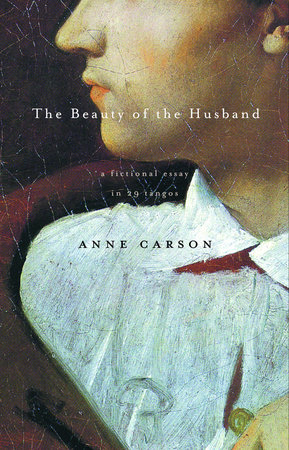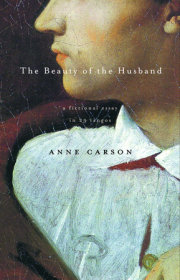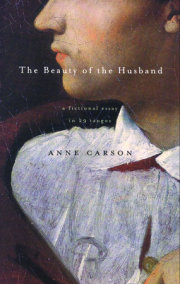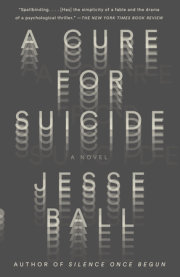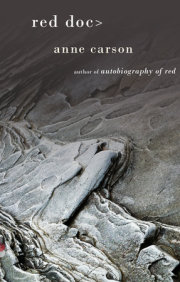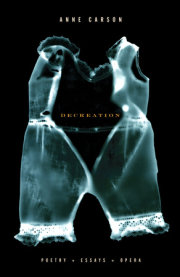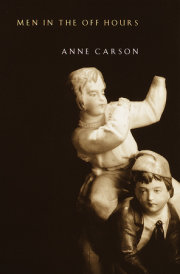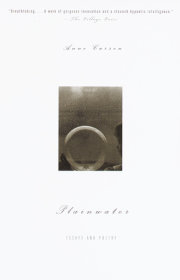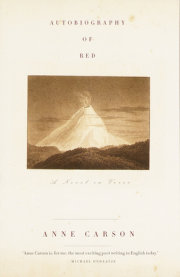II. BUT A DEDICATION IS ONLY FELICITOUS IF PERFORMED BEFORE WITNESSES--IT IS AN ESSENTIALLY PUBLIC SURRENDER LIKE THAT OF STANDARDS OF BATTLE
You know I was married years ago and when he left my husband took my notebooks.
Wirebound notebooks.
You know that cool sly verb write. He liked writing, disliked having to start
each thought himself.
Used my starts to various ends, for example in a pocket I found a letter he'd begun
(to his mistress at that time)
containing a phrase I had copied from Homer: 'entropalizomenh is how Homer says
Andromache went
after she parted from Hektor--"often turning to look back"
she went
down from Troy's tower and through stone streets to her loyal husband's
house and there
with her women raised a lament for a living man in his own halls.
Loyal to nothing
my husband. So why did I love him from early girlhood to late middle age
and the divorce decree came in the mail?
Beauty. No great secret. Not ashamed to say I loved him for his beauty.
As I would again
if he came near. Beauty convinces. You know beauty makes sex possible.
Beauty makes sex sex.
You if anyone grasp this--hush, let's pass
to natural situations.
Other species, which are not poisonous, often have colorations and patterns
similar to poisonous species.
This imitation of a poisonous by a nonpoisonous species is called mimicry.
My husband was no mimic.
You will mention of course the war games. I complained to you often enough
when they were here all night
with the boards spread out and rugs and little lamps and cigarettes like Napoleon's
tent I suppose,
who could sleep? All in all my husband was a man who knew more
about the Battle of Borodino
than he did about his own wife's body, much more! Tensions poured up the walls
and along the ceiling,
sometimes they played Friday night till Monday morning straight through, he
and his pale wrathful friends.
They sweated badly. They ate meats of the countries in play.
Jealousy
formed no small part of my relationship to the Battle of Borodino.
I hate it.
Do you.
Why play all night.
The time is real.
It's a game.
It's a real game.
Is that a quote.
Come here.
No.
I need to touch you.
No.
Yes.
That night we made love "the real way" which we had not yet attempted
although married six months.
Big mystery. No one knew where to put their leg and to this day I'm not sure
we got it right.
He seemed happy. You're like Venice he said beautifully.
Early next day
I wrote a short talk ("On Defloration") which he stole and had published
in a small quarterly magazine.
Overall this was a characteristic interaction between us.
Or should I say ideal.
Neither of us had ever seen Venice.
Copyright © 2002 by Anne Carson. All rights reserved. No part of this excerpt may be reproduced or reprinted without permission in writing from the publisher.

